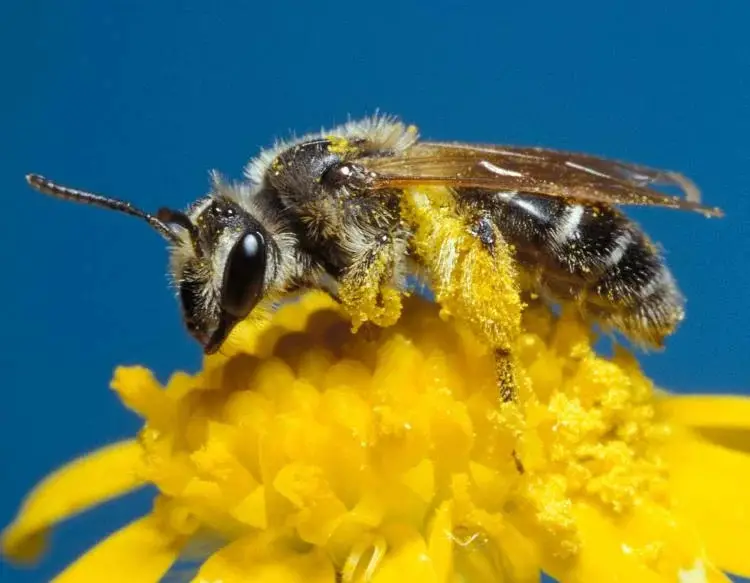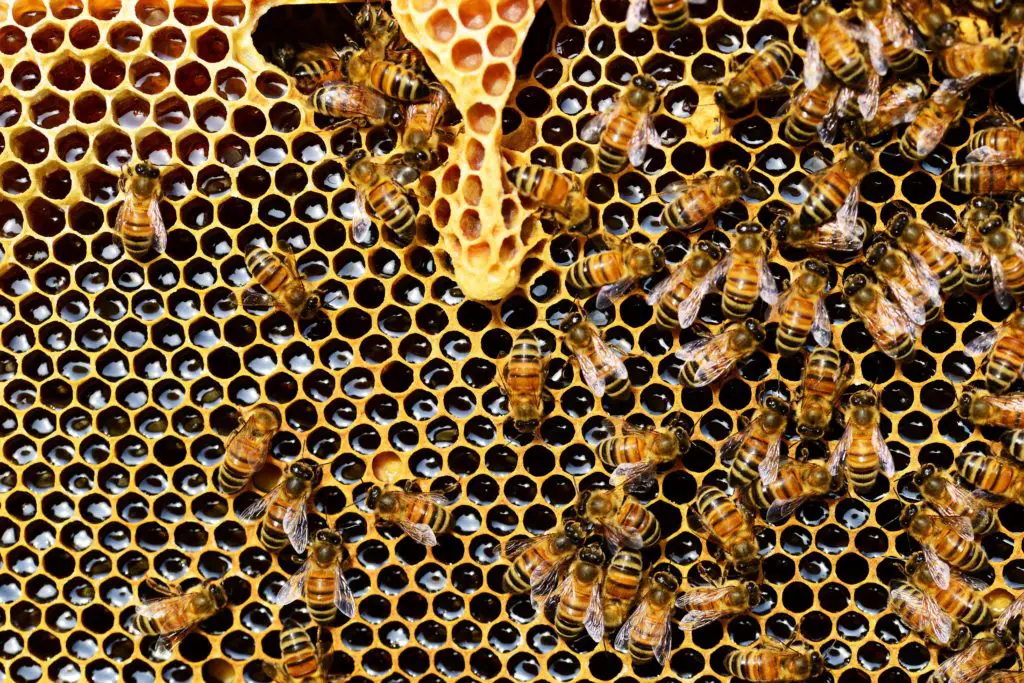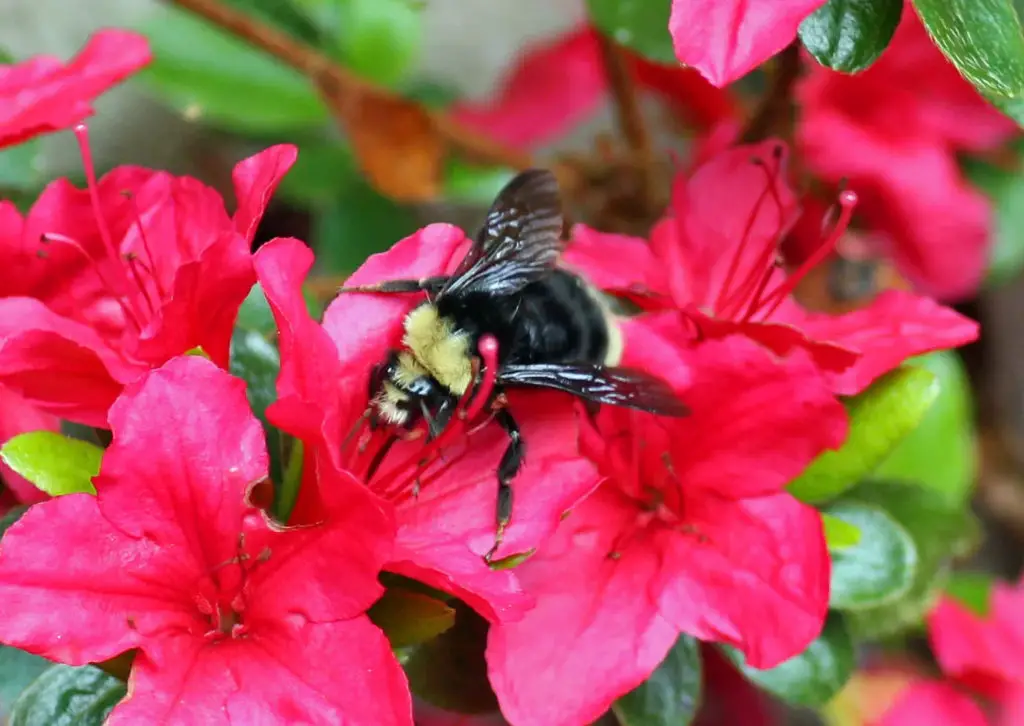Affiliate Disclaimer - As an Amazon Associate I earn from qualifying purchases.
It supports the website. So, Thank you
There are several insects that are attracted to light. One of the most famous is the moth. Turn on a porch light and you’ll find moths in their droves. But what about bees? Are bees attracted to light?
The short answer is yes, bees are attracted to light. This is because of an innate positive phototactic response which causes them to move towards a light source almost as a reflex.
But why is this and what can you do to stop bees gathering around your porch or illuminated seating area at the end of every day? In this guide, we’ll be looking at exactly what it is that causes bees to behave in this way and what you can do to keep the bees where they belong.
Table of Contents
Why Are Bees Attracted To Light?
Phototaxis is the natural phenomenon that causes bees to move towards a source of light. This is essentially a reaction from a living organism to some sort of stimuli. There are negative phototactic responses, which in this case, would cause an animal to move away from the stimuli but in bees, there is a positive response.
This positive response means that, when they are exposed to the stimuli, the bees will move towards it. In this example, that’s light. This is why you tend not to see many bees on cloudy days.
Bee Development And Phototaxis
All of this is extremely interesting but what will blow your mind, even more, is that, while this is a natural response in bees, it’s not something that they’re born with. Honey bees have the most natural phototactic responses but when you look at the various bees within any given hive, their responses are different.
Younger bees do not have such a developed positive phototactic response when compared to the older forager bees, for example. It is thought that this sense develops as the bees spend more and more time outside of the hive.
When they are younger, perhaps for the first few weeks of their lives, bees won’t leave the hive and will do most of their work inside it. If they do leave, it’s not for long and they won’t go far. So, there’s really no need for a phototactic response at this stage.
But as they grow, the bees will begin to leave the hive in order to forage. And it isn’t only their phototactic responses that develop as a result of this. Other changes happen to the bees including the development of the endocrine system and the structure of their brain.

Will Bees Be Attracted To My House Lights At Night?
Bees have a sleep/wake cycle that’s much like ours. Well, at least when we’re talking about forager bees. These members of the hive will work all through the day and then head back to the hive to rest at night. For this reason, it’s highly unlikely that you’ll return home after dark to be greeted by a swarm of bees. That said, there may be a few flying around at dusk still that might find your porch light attractive.
It is true that the younger nursing bees that work within the hive are still active at night but they’re incredibly unlikely to venture outside.
Insect Zappers Have Lights; Will This Attract Bees?
Many homes and businesses use insect zappers to get rid of unwanted bugs like flies. While these devices are important, a lot of people worry that they’re not good for bees. The good news is that bees aren’t really attracted to this kind of light so it’s unlikely that they’ll bother investigating a bug zapper.
That said, if they did, these devices are not designed to kill larger bugs like bees. They may sustain some harm but it won’t be fatal.
How Can I Keep Bees Away From Light Around My Home?
As we have mentioned, it is extremely unlikely that you’ll find bees buzzing around the patio and garden lights after dark. They simply aren’t active at this time of day. However, if it’s a dull day and your patio lights are switched on, you may notice a small amount of bee activity.
Do keep in mind that bees don’t fly in cooler weather and if it’s raining, you’re very unlikely to see any. By and large, they won’t be a problem. But if you want to avoid attracting bees because of light, the only viable solution is to turn off all lights until it gets dark.
But There May Be One Instance When Bees Fly Towards Light At Night…’Zombees’!
If you keep bees, you may one day find a lone bee buzzing around a source of light either inside or outside of the house. This is usually because the bee has a parasite known as the phorid fly. When attacked by one of these parasites, the bee begins behaving almost like a zombie. It doesn’t take long for the bee to die after this but while honeybees can be affected, it’s usually bumble bees that are the main target of the phorid fly.
Affected bees will behave far outside what you would typically expect from your honeybees. They have a tendency to leave the hive at night and bad weather won’t deter them from taking flight.
There is concern surrounding the honeybee population in North America because of this parasite. You can find information on local outbreaks of the phorid fly parasite using the Zombee Watch website but it’s also essential that you report any cases within your own bee community.
Conclusion
Are bees attracted to light? Yes, they are due to a natural response known as phototaxis. This causes the bees to have a positive reaction to stimuli and move towards a light source. However, this is typically only during the day as forager bees return to the hive at night to rest and are largely inactive. If you do notice bees flying around lights at night, this could be due to a parasite so it’s worth keeping an eye on.




